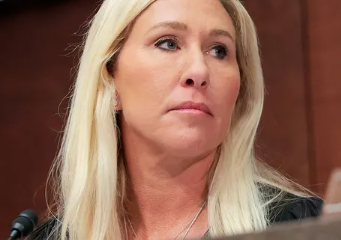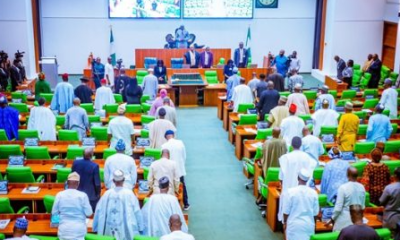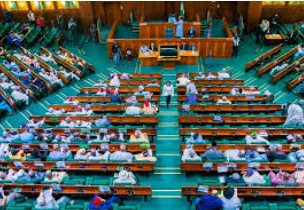Covid-19
Control of Infectious Diseases Bill: Echoes of dictatorial renaissance in Nigeria
Published
6 years agoon
By
Olu Emmanuel
The Nigerian National Assembly has subtly taken advantage of the outburst of coronavirus infection in the country to scuttle the growth of democracy and its associated value systems like human freedoms, liberty, etc., which the distortion of federalism in the country.
The increasingly unpopular Ninth National Assembly has in its designed infectious diseases control bill 2020, deliberately weakened the powers of state governments, reversed the federal structure for adoption of Unitarianism and centralised powers and law enforcement by the president or presidential mandate to federal institutions.
Apparently, the legislation on “A BILL FOR AN ACT TO REPEAL THE QUARANTINE ACT AND ENACT THE CONTROL OF INFECTIOUS DISEASES ACT, MAKE PROVISIONS RELATING TO QUARANTINE AND MAKE REGULATIONS FOR PREVENTING THE INTRODUCTION INTO AND SPREAD IN NIGERIA OF DANGEROUS INFECTIOUS DISEASES, AND FOR OTHER RELATED MATTERS,” in its entire contents, grossly deemphasised the interventionist roles of state governments while centralising all powers on the president who appoints the Director General of the National Centre for Disease control (NCDC) whom the bill recognised as the practical enforcer of the legislation, with relative reference to the Minister of Health.
Whereas the presence of the federal government is preponderantly concentrated in the Federal Capital Territory (FCT) and seldom felt or significant in the various states of the federation in terms of service delivery, may with exception of federal appointments, the law may be jeopardising the welfare of Nigerian citizens when governors become emasculated and citizens have to wait for the intervention of the president from the FCT.
The president is empowered in Part II of the new law – CONTROL OF INFECTIOUS DISEASES WITHIN THE FEDERAL REPUBLIC OF NIGERIA – to unilaterally make Declaration of Public Health Emergency and Public Health Emergency Zones “If the President is satisfied that there is an outbreak or imminent outbreak of an infectious disease that poses a substantial risk of a significant number of human fatalities or incidents of serious disability in Nigeria, he may, by order, declare a public health emergency.
“The President may, if it appears necessary or expedient for the securing of public health or safety during a public health emergency, by order declare the whole of or such area in Nigeria to be a restricted zone and may in such order prohibit or restrict, subject to such conditions as he may think fit —
(a.) the entry and stay of persons in any place, building or other premises (whether public or private) within the restricted zone; and
(b.) the holding of, or the attendance of persons at, any public meeting, reception, procession or other gathering within the restricted zone.
(1) Subject to subsection (4), every order made under subsection (1) or (2) shall remain in force until it is revoked by the President or upon the expiration of 14 days from the date upon which it was made, whichever is the earlier.”
The legislation does not make provision for consultation with governors of the 36 states of the federation.
The enforcement powers solely reposed on the federal health intervention structure, the NCDC, totally disregarded the existence of ministry of health of the state governments and their interventionist relevance is dealing with disease control or handling emergency disease outbreak to protect citizens within their jurisdiction.
The forceful obstinance of information under the guise of investigation clearly defies privacy rights of citizens. More so, the authority of the police or health officers to arrest persons suspected to be defying restriction order of the president without warrant of arrest is arbitrary and defies the rule of law. This is crystal renaissance of tyranny and transplanting democracy with totalitarianism; the president with the federal might determines what is right or wrong, then, citizens must comply.
The coronavirus episode has shown more active, more functional, more proactive, and more reassuring state governments with practical interventionists results than the federal government.
Generally, the interventionist role of the federal government is foremostly to coordinate the activities of states, provide necessary resources or financial aides to state governments to boost their activities, fund medical research on disease infections, control and cure. The Nigerian federal government in its coronavirus failed in developing domestic solutions to containing coronavirus as done in Madagascar, the federal government rather adopted wholesomely the stereotype intervention approaches adopted I n Europe and America.
Unfortunately, the Nigerian federal legislature in the disease control bill, incorporated all the stereotype contents of the West in the new law, with excruciating default of usurping the powers of the governors of the 36 states of the federation.
The federal legislators must be conscious of performing their functions not to cause legislative anarchy or create solutions that worse than the problem they seek to solver.
Download with the link below
You may like


Rep. Marjorie Taylor Greene calls for removal of COVID-19 vaccine from childhood immunization schedule


Reps endorses State of Emergency in Rivers


You Can’t Islamize Nigeria’ – Heated clash amongst Reps Members over proposed Shariah Law Bill


House of Representatives advances bill to arm FRSC officers


Federal Civil Servants decry prolonged delay in N70,000 minimum wage implementation


NBA President directs lawyers to monitor trials, provide free legal services to #EndBadGovernance protesters
Trending

 Entertainment1 week ago
Entertainment1 week agoSinger Simi faces backlash after TikToker admits to false rape allegation

 Entertainment5 days ago
Entertainment5 days agoSimi addresses resurfaced 2012 tweets amid online backlash

 Comments and Issues1 week ago
Comments and Issues1 week agoNigeria’s Declining Oil Output and Soaring Foreign Portfolio Investment Inflow

 Comments and Issues1 week ago
Comments and Issues1 week agoEx-prince Andrew’s arrest, lessons for Nigeria

 Business1 week ago
Business1 week agoPENGASSAN warns Tinubu’s executive order on oil revenues could jeopardise 4,000 jobs

 Health6 days ago
Health6 days agoSCFN, LUTH introduce bone marrow transplants as curative treatment for sickle cell

 Comments and Issues1 week ago
Comments and Issues1 week agoThe Seyi Tinubu’s jellof rice, loaves of bread

 Football6 days ago
Football6 days agoHarry Kane nets brace as Bayern edge Frankfurt 3–2 to go nine points clear

